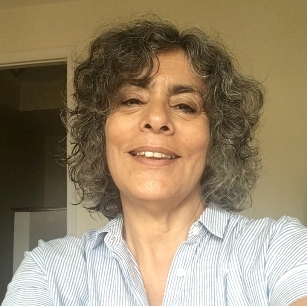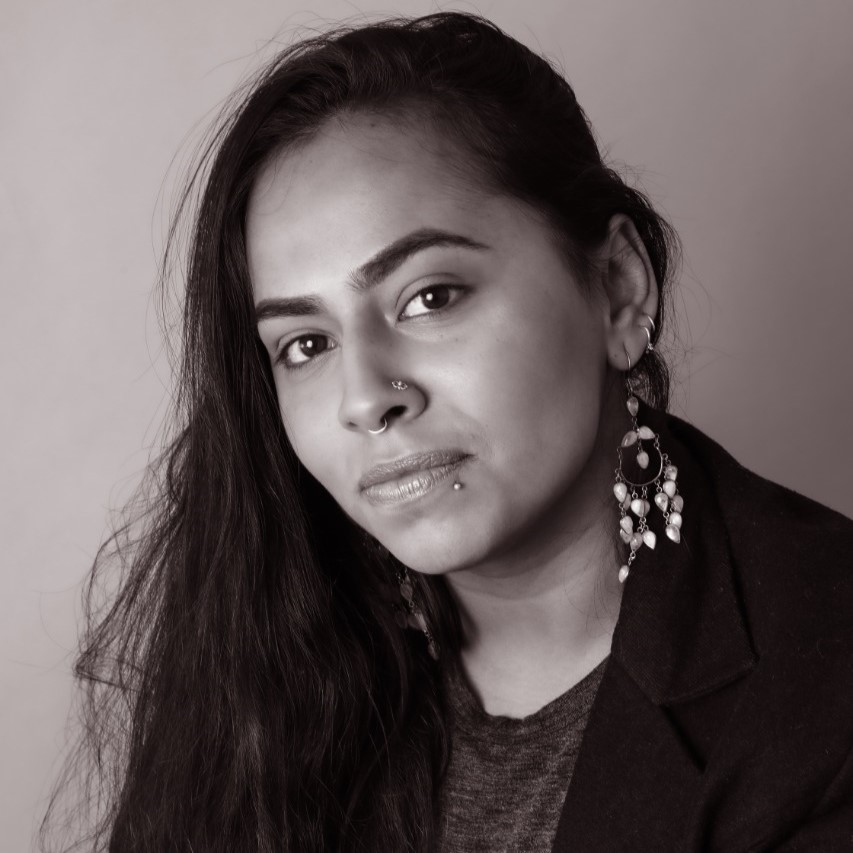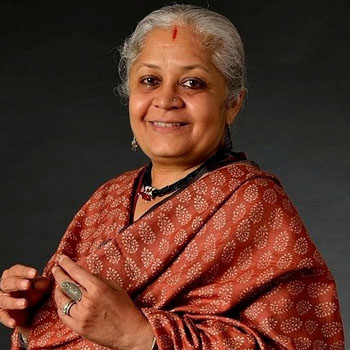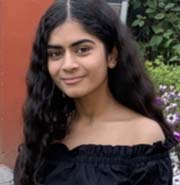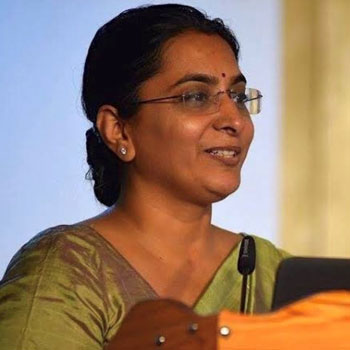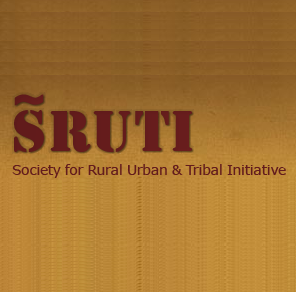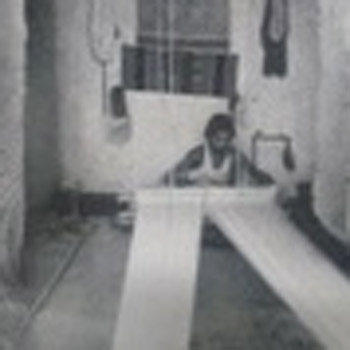JOURNAL ARCHIVE
Shukla, Sanskruti,
Sanskruti Shukla is a textile designer from National Institute of Design, Ahmedabad. She is interested in storytelling in crafts and their potential in being a catalyst for future change. Her endeavour in exploring the same has led her to work with Echo Stream, a multi disciplinary design studio in Sikkim, where she is working to build craft communities with the local women with an aim to uplift rural mountain economies and explore tools and processes through textiles.
Sanskruti Shukla is a textile designer from National Institute of Design, Ahmedabad. She is interested in storytelling in crafts and their potential in being a catalyst for future change. Her endeavour in exploring the same has led her to work with Echo Stream, a multi disciplinary design studio in Sikkim, where she is working to build craft communities with the local women with an aim to uplift rural mountain economies and explore tools and processes through textiles.
Singh, Govind,
Govind Singh is doing his PhD "Urban Ecology of Delhi" at the School of Environmental Studies, University of Delhi
Govind Singh is doing his PhD "Urban Ecology of Delhi" at the School of Environmental Studies, University of Delhi
Singh, Mitra,
Mitra Singh a graduate of IICD, Jaipur has worked on several craft projects including ceramics, handmade paper, appliqué and others.
Mitra Singh a graduate of IICD, Jaipur has worked on several craft projects including ceramics, handmade paper, appliqué and others.
Singh, Priyanka,
Priyanka Singh studied Applied Arts from Chandigarh College of Art and is at present pursuing Graphic design at NID, Ahmedabad. Her interests include photography, music, movies and dogs!
Priyanka Singh studied Applied Arts from Chandigarh College of Art and is at present pursuing Graphic design at NID, Ahmedabad. Her interests include photography, music, movies and dogs!
Singh, Radhika,
Radhika Singh completed her Masters in Social Work from Delhi University in 1976. In 1979 she submitted her M.Phil. thesis to the Jawaharlal Nehru University on The Dialectics of Industrial Growth in India. The Case of the Cotton Textile Industry. From 1973 - 1983 Radhika trained with a prominent Delhi theatre group and acted in productions like Jesus Christ Superstar, Boing-Boing and King Lear. Simultaneously working as a model in Delhi, she was photographed by Madan Mahatta, Avinash Pasricha, Raghu Rai, Hardev Singh and Kitty Hazuria, and walked the ramp in over 40 shows. In 1987 Radhika started the first photo agency in Delhi. With a bank of 200 photographers, and a stock of 100,000 pictures. Fotomedia is credited with professionalizing the use of images in the Indian market. In addition, she produced audio visuals, worked as consultant photo editor for publishing houses, and curated photo exhibitions in India and the UK. Between 1998- 2000, she initiated a series of installations at the India Habitat Centre, pioneering the cause of photography as an art form. Some of her best-known curatorial projects include ‘Incredible India’ for the Ministry of Tourism; ‘Try to See It My Way’, for the Bill Gates Foundation; Sunil Gupta’s autobiographical “Pictures From Here’; ‘Relative Values’ for India’s 60th anniversary and ‘Through Dad’s Eyes: Lahore 1946 – Delhi 1966’. She co-curated ‘Click! Contemporary Photography in India’ for the Vadehra Art Gallery and ‘Where Three Dreams Cross’. A History of Photography from India, Pakistan & Bangladesh’, which opened at the Whitechapel Gallery in London in 2010. Radhika published her first book, ‘The Fabric of our Lives. The History of Fabindia’ in 2010. Her next book, ‘Suraiya Hasan Bose. Weaving a legacy’, documents the work of Suraiya apa, a textile icon from Hyderabad. It was published by Dr. Reddy’s Foundation.
Radhika Singh completed her Masters in Social Work from Delhi University in 1976. In 1979 she submitted her M.Phil. thesis to the Jawaharlal Nehru University on The Dialectics of Industrial Growth in India. The Case of the Cotton Textile Industry. From 1973 - 1983 Radhika trained with a prominent Delhi theatre group and acted in productions like Jesus Christ Superstar, Boing-Boing and King Lear. Simultaneously working as a model in Delhi, she was photographed by Madan Mahatta, Avinash Pasricha, Raghu Rai, Hardev Singh and Kitty Hazuria, and walked the ramp in over 40 shows. In 1987 Radhika started the first photo agency in Delhi. With a bank of 200 photographers, and a stock of 100,000 pictures. Fotomedia is credited with professionalizing the use of images in the Indian market. In addition, she produced audio visuals, worked as consultant photo editor for publishing houses, and curated photo exhibitions in India and the UK. Between 1998- 2000, she initiated a series of installations at the India Habitat Centre, pioneering the cause of photography as an art form. Some of her best-known curatorial projects include ‘Incredible India’ for the Ministry of Tourism; ‘Try to See It My Way’, for the Bill Gates Foundation; Sunil Gupta’s autobiographical “Pictures From Here’; ‘Relative Values’ for India’s 60th anniversary and ‘Through Dad’s Eyes: Lahore 1946 – Delhi 1966’. She co-curated ‘Click! Contemporary Photography in India’ for the Vadehra Art Gallery and ‘Where Three Dreams Cross’. A History of Photography from India, Pakistan & Bangladesh’, which opened at the Whitechapel Gallery in London in 2010. Radhika published her first book, ‘The Fabric of our Lives. The History of Fabindia’ in 2010. Her next book, ‘Suraiya Hasan Bose. Weaving a legacy’, documents the work of Suraiya apa, a textile icon from Hyderabad. It was published by Dr. Reddy’s Foundation.
Singh, Saumya,
Saumya Singh is a textiles and material designer with a textile background. Her practice involves innovation with materials that evolve from culturally rooted regenerative systems and from waste cycles of consumption. Understanding material context and relevance in its ecology from the past, present and possible future drives her approach. She worked on two major projects dealing with the value chain of different wool cycles in Kutch, Gujarat and Kullu, Himachal Pradesh in India. As part of her graduate project at MA Biodesign, she worked to bring together urban material waste streams of eggshells along with UK wool through woven material making. She is currently working with Modern Synthesis as a Textile Production Technician, giving form to their cutting edge materials derived from bacterias. She is passionate about innovating with materials and employing systems thinking for future sustenance.
Saumya Singh is a textiles and material designer with a textile background. Her practice involves innovation with materials that evolve from culturally rooted regenerative systems and from waste cycles of consumption. Understanding material context and relevance in its ecology from the past, present and possible future drives her approach. She worked on two major projects dealing with the value chain of different wool cycles in Kutch, Gujarat and Kullu, Himachal Pradesh in India. As part of her graduate project at MA Biodesign, she worked to bring together urban material waste streams of eggshells along with UK wool through woven material making. She is currently working with Modern Synthesis as a Textile Production Technician, giving form to their cutting edge materials derived from bacterias. She is passionate about innovating with materials and employing systems thinking for future sustenance.
Sinha, Mala,
Mala Sinha, co-owner of BODHI, a successful clothing and textile atelier in Baroda. A graduate of the National Institute of Design, (1974 - 1980) Mala Sinha is an accomplished designer entrepreneur with her own design studio and a textile-printing workshop. Set up in 1984, Mala's small workshop is highly respected for its understated, quiet aesthetics as well as its contribution to the language of patterning on textiles. Today, The workshop has grown into a well-knit team of craftsmen who are engaged in producing beautiful products that are ethically made. At Bodhi, respect for the environment and natural resources is the mantra and a commitment to sustainable way of working is the collective responsibility. Every single process at the workshop is directed to save water, reduce water usage and minimize drudgery in industrial work. Bodhi takes pride in being an environment-friendly company through it s use of sustainable practices and technological innovations that save energy, print high quality textiles and leave minimum carbon and water footprint. Over the years, Mala has tirelessly experimented with various printing, dyeing & other means of embellishing textile surfaces giving these craft techniques a new and a refreshing direction - be it hand block printing, screen printing, dyeing or hand embroidery, appliqué and patchwork. Mala s designs seamlessly bridge rich tradition in textiles with contemporary aesthetic sensibilities, offering in every collection a fresh and an inspiring interpretation. Her in depth understanding of printing technology combined with her creative energy she charges each product with, makes her creations noteworthy as unique examples of design and craftsmanship with a huge respect for materials used. Besides nurturing BODHI, her design studio workshop, Mala has worked as a research assistant with Dr. Lotika Varadhrajan for her book " South Indian traditions of Kalamkari" She has also worked as a research assistant as well as travel companion to Yoshiko Iwamoto Wada - president - world shibori symposium - while she was in India as a full bright scholar - to research on the Indian Traditions of tie dye and Bandhani. UNESCO and the World Crafts Council has recognized BODHI by awarding its "seal of excellence" for design, innovation and craftsmanship for the year 2012, 2014, 2016, 2018.
Mala Sinha, co-owner of BODHI, a successful clothing and textile atelier in Baroda. A graduate of the National Institute of Design, (1974 - 1980) Mala Sinha is an accomplished designer entrepreneur with her own design studio and a textile-printing workshop. Set up in 1984, Mala's small workshop is highly respected for its understated, quiet aesthetics as well as its contribution to the language of patterning on textiles. Today, The workshop has grown into a well-knit team of craftsmen who are engaged in producing beautiful products that are ethically made. At Bodhi, respect for the environment and natural resources is the mantra and a commitment to sustainable way of working is the collective responsibility. Every single process at the workshop is directed to save water, reduce water usage and minimize drudgery in industrial work. Bodhi takes pride in being an environment-friendly company through it s use of sustainable practices and technological innovations that save energy, print high quality textiles and leave minimum carbon and water footprint. Over the years, Mala has tirelessly experimented with various printing, dyeing & other means of embellishing textile surfaces giving these craft techniques a new and a refreshing direction - be it hand block printing, screen printing, dyeing or hand embroidery, appliqué and patchwork. Mala s designs seamlessly bridge rich tradition in textiles with contemporary aesthetic sensibilities, offering in every collection a fresh and an inspiring interpretation. Her in depth understanding of printing technology combined with her creative energy she charges each product with, makes her creations noteworthy as unique examples of design and craftsmanship with a huge respect for materials used. Besides nurturing BODHI, her design studio workshop, Mala has worked as a research assistant with Dr. Lotika Varadhrajan for her book " South Indian traditions of Kalamkari" She has also worked as a research assistant as well as travel companion to Yoshiko Iwamoto Wada - president - world shibori symposium - while she was in India as a full bright scholar - to research on the Indian Traditions of tie dye and Bandhani. UNESCO and the World Crafts Council has recognized BODHI by awarding its "seal of excellence" for design, innovation and craftsmanship for the year 2012, 2014, 2016, 2018.
Skidmore, Suki,
Suki Skidmore has been the Visiting Consultant & Curator for the Anokhi Museum of Hand Printing since 2006. After receiving a BA from Denison University and an MA from Columbia University in Art History, she worked in the education department of various museums including the Metropolitan Museum of Art , the Taft Museum of Art and the Neuberger Museum as a recipient of a National Endowment for the Arts Fellowship in Museum Studies. She recently authored Sanganer: TraditionalTextiles – Contemporary Cloth.
Suki Skidmore has been the Visiting Consultant & Curator for the Anokhi Museum of Hand Printing since 2006. After receiving a BA from Denison University and an MA from Columbia University in Art History, she worked in the education department of various museums including the Metropolitan Museum of Art , the Taft Museum of Art and the Neuberger Museum as a recipient of a National Endowment for the Arts Fellowship in Museum Studies. She recently authored Sanganer: TraditionalTextiles – Contemporary Cloth.
Smith, Clare Brett,
Clare Brett Smith Founder and Former President of Aid to Artisans (ATA), a USA-based international nonprofit. Under her leadership from 1986 onwards ATA and its partners delivered critical product development, training and marketing services to 65,000 artisans in 41 countries and an additional 60,000 artisans received small grants. Seventy-two percent of these artisans were women. During this period, ATA’s sales efforts leveraged nearly $230 million in retail commerce, a testament to her ability to help reach artisans who were completely unfamiliar with export. She also helped secure ATA’s first major project in Honduras from 1984-1986, which eventually generated $15 million in U.S. sales. Prior to the project, no artisan businesses existed in the country. Ms Smith was a member of the First Delegation of Artists and Craftsmen to the People’s Republic of China in 1977, and represented Haiti at the World Crafts Council meeting in Kyoto in 1978. Clare has received numerous awards, including a 2005 Decorative Accessories Industry Achievement Award. She has been asked to present her work at worldwide leadership conferences including the Leadership Conference on Conservancy & Development in the Yunnan Province, China in 1999 and the Maker and Meaning: Craft and Society international seminar in Madras, India. In 2002, she was the juror for UNESCO Crafts Prize for Latin American and Caribbean artisans at the International Craft & Design Fair in Mexico City. In 2006, she was awarded an honorary doctorate by Clark University. She is also a renowned photographer and teacher of photography. Her photos hang from museum walls and studio center exhibits across the country.
Clare Brett Smith Founder and Former President of Aid to Artisans (ATA), a USA-based international nonprofit. Under her leadership from 1986 onwards ATA and its partners delivered critical product development, training and marketing services to 65,000 artisans in 41 countries and an additional 60,000 artisans received small grants. Seventy-two percent of these artisans were women. During this period, ATA’s sales efforts leveraged nearly $230 million in retail commerce, a testament to her ability to help reach artisans who were completely unfamiliar with export. She also helped secure ATA’s first major project in Honduras from 1984-1986, which eventually generated $15 million in U.S. sales. Prior to the project, no artisan businesses existed in the country. Ms Smith was a member of the First Delegation of Artists and Craftsmen to the People’s Republic of China in 1977, and represented Haiti at the World Crafts Council meeting in Kyoto in 1978. Clare has received numerous awards, including a 2005 Decorative Accessories Industry Achievement Award. She has been asked to present her work at worldwide leadership conferences including the Leadership Conference on Conservancy & Development in the Yunnan Province, China in 1999 and the Maker and Meaning: Craft and Society international seminar in Madras, India. In 2002, she was the juror for UNESCO Crafts Prize for Latin American and Caribbean artisans at the International Craft & Design Fair in Mexico City. In 2006, she was awarded an honorary doctorate by Clark University. She is also a renowned photographer and teacher of photography. Her photos hang from museum walls and studio center exhibits across the country.
Smith, Nima-Poovaya,
Nima-Poovaya Smith is Director of Alchemy, a cultural enterprise company whose central concern is the development of ideas into creative product with a particular interest in the exploration of the confluences of different cultures and disciplines. She is Director of Connect: People, Place and Imagination - Cartwright Hall Art Gallery Collections. Nima is also Project Director of Pillars of Light, a year-long, region-wide programme of events exploring different aspects of Muslim cultures and heritage. Nima was Head of Special Projects at the National Museum of Photography, Film & Television, Bradford until April 2004. Previously, as Director of Arts at Yorkshire Arts (now Arts Council, Yorkshire) she project directed the extremely successful Year of the Artist campaign for Yorkshire and the Humber region in 2000 - 01. As Senior Keeper, International Arts at Bradford Art Galleries and Museums from 1986 -1997 she curated a number of nationally acclaimed historical and contemporary exhibitions relating to themes as varied as Women Artists of Pakistan and 101 Saris from India. She also set up the Transcultural Gallery, which houses the permanent international collections of Cartwright Hall. She has written and lectured extensively on the arts.
Nima-Poovaya Smith is Director of Alchemy, a cultural enterprise company whose central concern is the development of ideas into creative product with a particular interest in the exploration of the confluences of different cultures and disciplines. She is Director of Connect: People, Place and Imagination - Cartwright Hall Art Gallery Collections. Nima is also Project Director of Pillars of Light, a year-long, region-wide programme of events exploring different aspects of Muslim cultures and heritage. Nima was Head of Special Projects at the National Museum of Photography, Film & Television, Bradford until April 2004. Previously, as Director of Arts at Yorkshire Arts (now Arts Council, Yorkshire) she project directed the extremely successful Year of the Artist campaign for Yorkshire and the Humber region in 2000 - 01. As Senior Keeper, International Arts at Bradford Art Galleries and Museums from 1986 -1997 she curated a number of nationally acclaimed historical and contemporary exhibitions relating to themes as varied as Women Artists of Pakistan and 101 Saris from India. She also set up the Transcultural Gallery, which houses the permanent international collections of Cartwright Hall. She has written and lectured extensively on the arts.
Sobel, Anna,
Sobel, Anna is originally from New York City. She received her BA in English from Wesleyan University where she first became involved in puppetry after witnessing an inspiring performance by Vermont's activist troupe Bread and Puppet Theatre. From 2001-2003 she worked for an educational children's theatre based in Washington, D.C. called Blue Sky Puppet Theatre. She came to India in September 2003 on a nine-month Fulbright grant to study Indian puppetry and its use as a tool for effecting social change.
Sobel, Anna is originally from New York City. She received her BA in English from Wesleyan University where she first became involved in puppetry after witnessing an inspiring performance by Vermont's activist troupe Bread and Puppet Theatre. From 2001-2003 she worked for an educational children's theatre based in Washington, D.C. called Blue Sky Puppet Theatre. She came to India in September 2003 on a nine-month Fulbright grant to study Indian puppetry and its use as a tool for effecting social change.
Sood, Anubha,
Anubha Sood, a graduate in Social Policy and Planning in Developing Countries from the London School of Economics (2002) in currently working as a Manager-Market Access Initiatives with AIACA-All India Artisans and Crafts Workers Association. In the past she has worked with Action Aid, OXFAM, Dastkar and URMUL Trust. She specializes in various aspects of craft related income generation programme-identification of crafts, craft communities, production planning, quality control, linking with the appropriate markets and self sustenance of the programme. She has conducted extensive training programs with women and artisans in various aspects of income generation. She has also helped set up a crafts shop in Lucknow called SANATKADA.
Anubha Sood, a graduate in Social Policy and Planning in Developing Countries from the London School of Economics (2002) in currently working as a Manager-Market Access Initiatives with AIACA-All India Artisans and Crafts Workers Association. In the past she has worked with Action Aid, OXFAM, Dastkar and URMUL Trust. She specializes in various aspects of craft related income generation programme-identification of crafts, craft communities, production planning, quality control, linking with the appropriate markets and self sustenance of the programme. She has conducted extensive training programs with women and artisans in various aspects of income generation. She has also helped set up a crafts shop in Lucknow called SANATKADA.
Southwell, Dr. Mirjam,
Dr. Mirjam Southwell works and writes on design education in the United Kingdom.
Dr. Mirjam Southwell works and writes on design education in the United Kingdom.
Srivastava, Jashoda Priya,
Jashoda Priya Srivastava is a student of the 12th Grade at Sardar Patel Vidyalaya, New Delhi. As Secretary of the ‘Display & Design’ portfolio in the school’s student govt. she has tried to keep alive a healthy interest in traditional Indian Arts & Crafts within the student community. Her creative side exults in the organisation of the Vidyalaya’s much awaited “Saanjhi” festival each year. “Saanjhi” is a word that loosely translates to “Creative Collective”. In this festival, weavers from the NorthEast of India, Street performers from Rajasthan and other traditional artisans from all over the country are invited to transform the school campus with the colours, crafts and sounds of creative ethnicity. She has always delighted in all that is artistic, and in this article she has attempted to document the way native Indian arts & crafts are stealing their way into the hearts of railway passengers in the nation’s lifeline – the Indian Railways.
Jashoda Priya Srivastava is a student of the 12th Grade at Sardar Patel Vidyalaya, New Delhi. As Secretary of the ‘Display & Design’ portfolio in the school’s student govt. she has tried to keep alive a healthy interest in traditional Indian Arts & Crafts within the student community. Her creative side exults in the organisation of the Vidyalaya’s much awaited “Saanjhi” festival each year. “Saanjhi” is a word that loosely translates to “Creative Collective”. In this festival, weavers from the NorthEast of India, Street performers from Rajasthan and other traditional artisans from all over the country are invited to transform the school campus with the colours, crafts and sounds of creative ethnicity. She has always delighted in all that is artistic, and in this article she has attempted to document the way native Indian arts & crafts are stealing their way into the hearts of railway passengers in the nation’s lifeline – the Indian Railways.
Srivastava, Vinita,
An officer with the Indian Railways, Vinita Srivastava is presently the Executive Director, Railway Heritage heading the Heritage Directorate of the Railway Board in Rail Bhavan, New Delhi. Ms Srivastava qualified as a Mechanical Engineer (IMechE) in 1996, and studied for an Executive Masters in Management from IIM Ahmedabad in 2011. More recently, in 2017 she became a Chevening Science and Innovation Fellow from St Cross College, Oxford University. Her work experience spans two decades in rail transportation and her previous posting was in the Ministry of Culture where she developed her knowledge of cultural studies, museology and conservation architecture. She took up her present post in April 2019 after three years administrating the National Mission on Cultural Mapping and the IGNCA. In 2018 she was instrumental in developing a bilateral MoU for cultural and conservation information for the
UNESCO WHS temple complex of Angkor Wat in Cambodia. Her remit includes the UNESCO protected Railway Industrial Heritage sites like the CSMT building and the Mountain Railways of Darjeeling, Shimla & the Nilgiris.
Sturm, Robert,
Robert has been a craftsman, collector and curator of traditional art and craft for almost 50 years. As a child, he learned to knit and crochet from family members and then learned to spin, weave and work with natural dyes when he spent time at the Rochester Folk Art Guild in New York State. Through decades of world travel, Robert spent time with artists and craftspeople in many countries, including, the US, Canada, Bulgaria, Guatemala, India and Nepal and collected the work of traditional artists and craftspeople. Since 2015, Robert has had a home in Oaxaca, Mexico where he has and worked with local artists, museums and organizations to organize education for traditional makers, promote decolonization of the art market and curate exhibits of work by traditional artists who have developed individual and innovative styles. His current work focuses on the development of resources for traditional artists from Oaxaca.
Robert has been a craftsman, collector and curator of traditional art and craft for almost 50 years. As a child, he learned to knit and crochet from family members and then learned to spin, weave and work with natural dyes when he spent time at the Rochester Folk Art Guild in New York State. Through decades of world travel, Robert spent time with artists and craftspeople in many countries, including, the US, Canada, Bulgaria, Guatemala, India and Nepal and collected the work of traditional artists and craftspeople. Since 2015, Robert has had a home in Oaxaca, Mexico where he has and worked with local artists, museums and organizations to organize education for traditional makers, promote decolonization of the art market and curate exhibits of work by traditional artists who have developed individual and innovative styles. His current work focuses on the development of resources for traditional artists from Oaxaca.
Sunny and Meeta,
Sunny and Meeta are a couple working towards providing rural communities with the means of a sustained livelihood. Sunny has worked with NGO's and projects involved in afforestation, drought relief, craft development and community participation in Rajasthan, Uttar Pradesh and Bihar. He worked for a year in Haryana coordinating a rural centre for organic farming, informal learning, raising women awareness while editing and writing booklets and magazines which tried to evolve practical programmes stemming from ecological indigenous visions. Before striking out with her partner Sunny, Meeta worked with Dastkar for 4 years organising crafts groups and establishing Crafts Bazaars in different cities. For the past 12 years Sunny and Meeta have been developing ranges of natural dyes and block prints on tussar, cotton, silk, jute with an artisan family in Rajasthan. Simultaneously they have been working with artisan families making artificial jewelry out of threads and with lacquer workers. They consult for craft agencies and groups and develop craft merchandising avenues.
Sunny and Meeta are a couple working towards providing rural communities with the means of a sustained livelihood. Sunny has worked with NGO's and projects involved in afforestation, drought relief, craft development and community participation in Rajasthan, Uttar Pradesh and Bihar. He worked for a year in Haryana coordinating a rural centre for organic farming, informal learning, raising women awareness while editing and writing booklets and magazines which tried to evolve practical programmes stemming from ecological indigenous visions. Before striking out with her partner Sunny, Meeta worked with Dastkar for 4 years organising crafts groups and establishing Crafts Bazaars in different cities. For the past 12 years Sunny and Meeta have been developing ranges of natural dyes and block prints on tussar, cotton, silk, jute with an artisan family in Rajasthan. Simultaneously they have been working with artisan families making artificial jewelry out of threads and with lacquer workers. They consult for craft agencies and groups and develop craft merchandising avenues.
Szanton, David,
David Szanton is President, Ethnic Arts Foundation that has been working with the Mithila painters of Bihar since 1977, and has been running the free Mithila Art Institute in Madhubani since 2003.




